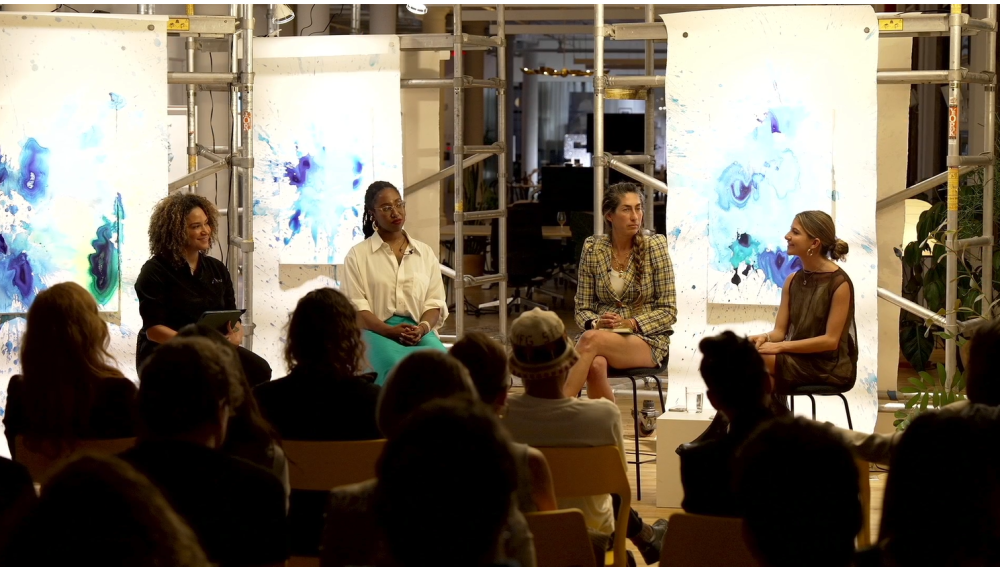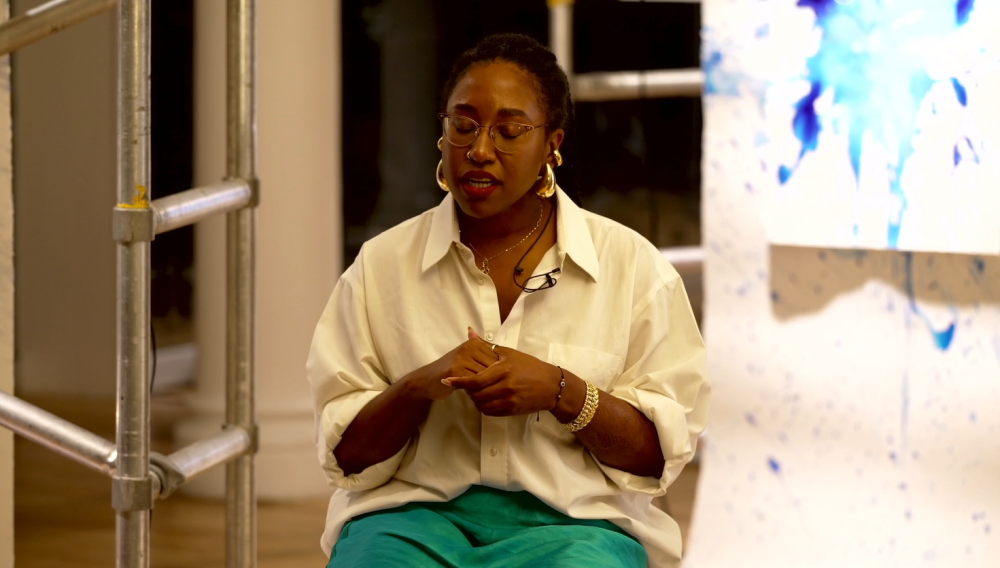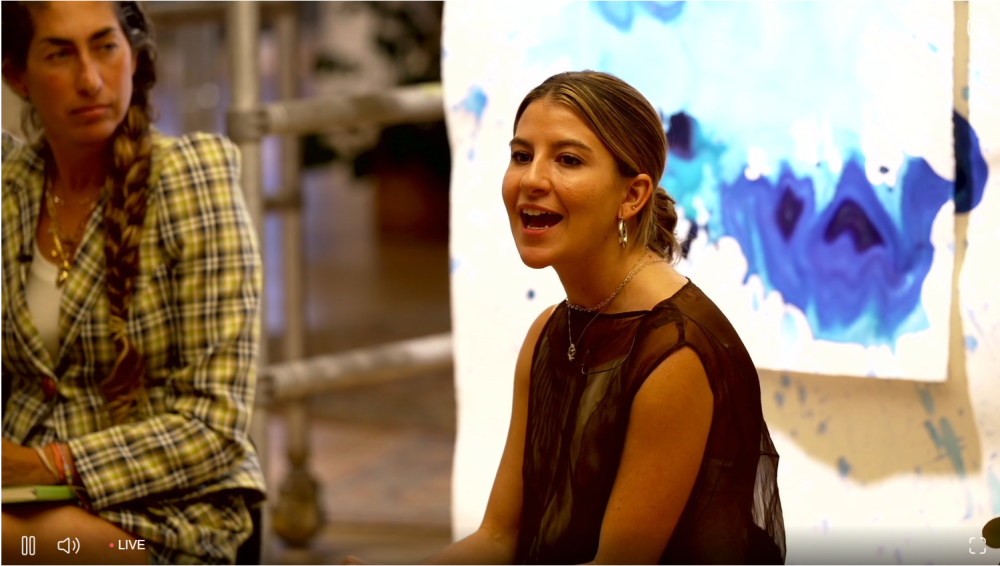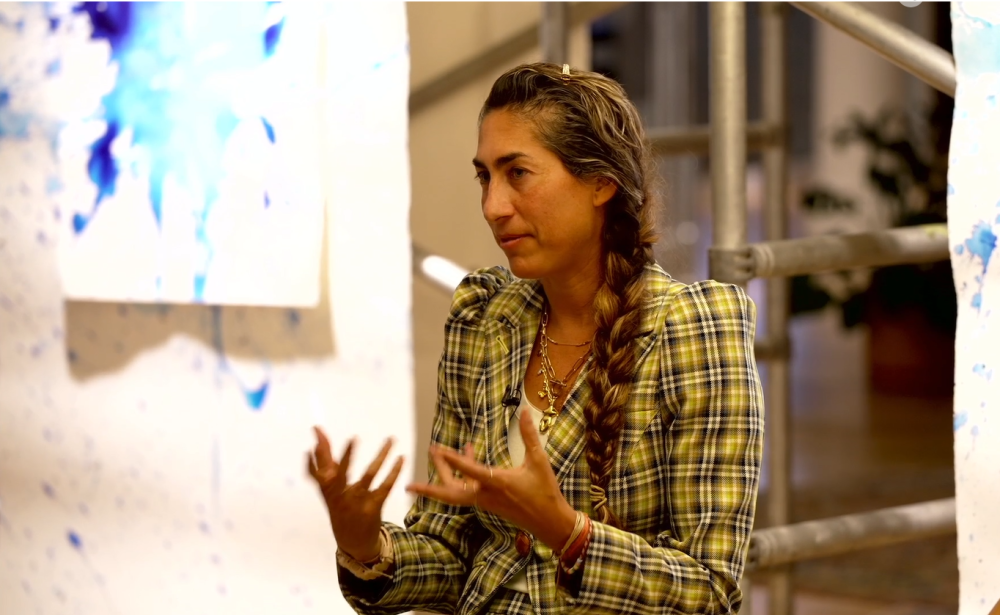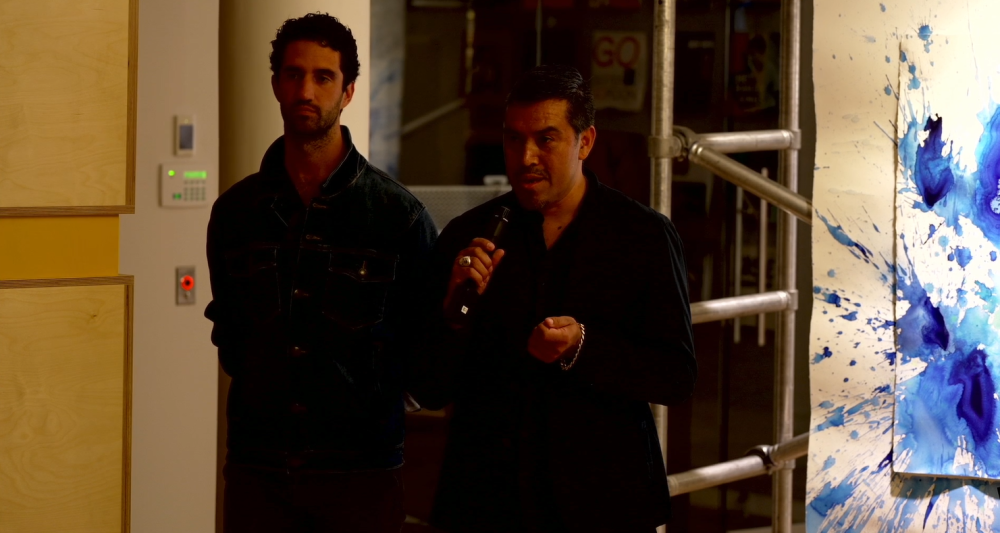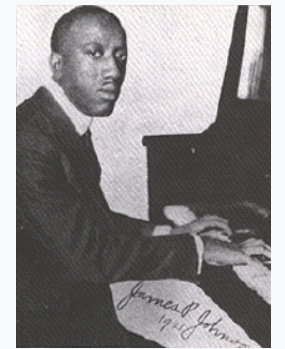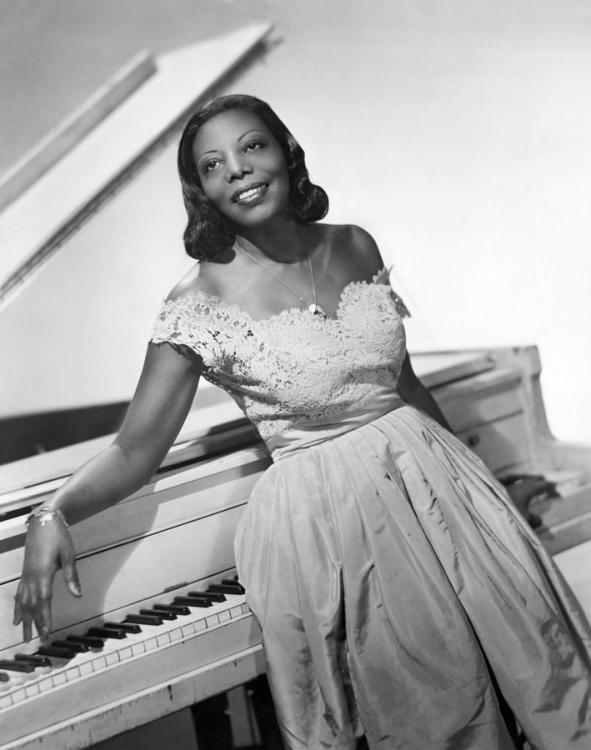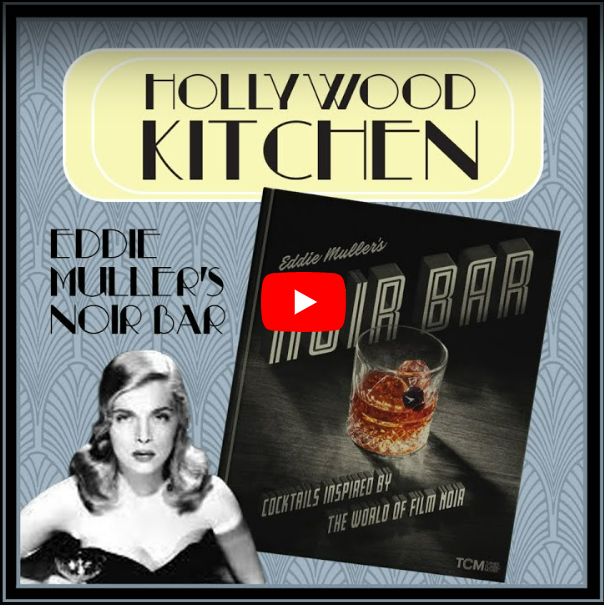-
Posts
2,402 -
Joined
-
Last visited
-
Days Won
91
Content Type
Profiles
Forums
Blogs
Events
Status Updates posted by richardmurray
-
IS SCHRUMPFT A LEADER
I don't consider schrumpt a leader,
but I have a why. He doesn't organize. The maga crowd was the tea party crowd, was the christian conservative crowd in the 1970's-1980s , was the white folk who hanged black folk and burned black folk in the 1960s and before.
Schrumpf didn't get the MAga's angry, they have been ready to fight since the 1950s,since the war between thes tates, since the usa was founded... what Schrumpf did was mob guide, not start , not lead, mob guide, ala the film intruder, take a look, for free:) linked at the end of my comment.
And to get into the black community in the usa, black statians , unlike the white community in the usa, white statians where various whites guide white people with violent intent, black people with violent intent rarely have such a public guide. I know most white media and some black media today talks about people like Nat Turner, and Saint Garvey and Brother Malcolm or lessers like farrakhan or mumia but none of them, to be fair, ever said, just go out and hurt white people. Lock her up, that kind of talk was never uttered by the people i mentioned. The people i mentioned said defend yourself by any means and white media and to be fair, many in black media, take that as equivalent to people like schrumpf in the white community in the usa, with his opeds on five black children.
Leaders can motivate but the problem in the usa is people, black or non black, tend to view the supporters to schrumpft as needing him, they don't need him to be motivated, to be passionate, to be organized, they need him to guide.
This is why so many whites , immigrants, were so appalled by Schrumpt as president, while the maga were happy. it was his executive shift. What if the USA stopped being the policeman of europe. What if the USA joined with Russia against china. What if the USA stopped being the center of the global human migratory storm. For rural whites in the usa this is ideal. now for white city folk , many of whom are from immigrant stock as well as the hordes of non white immigrants, this is the nightmare. SCrumpft is not a legislator or organizer, sequentially his policies couldn't get through congress but as an executive, he put in place the seeds of that and again it was guiding, not leadership.
IF you can not organize, which schrumpft has proven he can not then...in my eyes , you can not be a leader
https://aalbc.com/tc/profile/6477-richardmurray/?status=2422&type=status
-

in the forum post
a person can be well known or popular and be a leader.
I oppose your assertion that schrumpf is a leader, i consider him a mob guide, that goes back to his central park 5 opinion. it didn't lead, scrumpft comprehends a simple truth, the usa is a multiracial country which means a populace in every race in the usa: women/white/black/native/men/young/old/immigrant/christian/muslim/chinese/nigeiran/russian/any other you can think of dislike/hate everybody else. And the populace inside the white community in the usa that dislike/hate everybody else is large enough to be profitable in one way or another.
The proof is the black followers, people say it is shocking but it isn't. The black community in the usa don't have anyone like Schrumpf. a black person , financially safe that can or desires to mouthpiece pure dislike or hate with an anti immigratory or anti integrated position.
Take a look at the film, the intruder, for free
https://aalbc.com/tc/profile/6477-richardmurray/?status=2422&type=status
-
-
A little nudity - made for supertiti09 to make his own version
Colored page
Bra
https://www.deviantart.com/hddeviant/art/To-supertiti09-precious-color-984594339
No Bra
https://www.deviantart.com/hddeviant/art/For-Supertitii09-Color-984580542Coloring page
No Bra
https://www.deviantart.com/hddeviant/art/For-Supertitii09-Black-And-White-984580246
Bra
https://www.deviantart.com/hddeviant/art/To-supertiti09-precious-black-and-white-984594174@youtube_worldnewstoday At 2 Chains Virgo birthday party  #70s #groovy #shewon #virgo
#70s #groovy #shewon #virgo ️ #virgosrason #hippie #brownsugar #fyp #GRWM #foryoupage #trending #viral #tiktok #dance ♬ Zaddy - Wild MahoGany & GOE & UnitedThruMusic
️ #virgosrason #hippie #brownsugar #fyp #GRWM #foryoupage #trending #viral #tiktok #dance ♬ Zaddy - Wild MahoGany & GOE & UnitedThruMusic
-
I made a reply to the following
MY REPLY TO THE TOPIC
I will only opine on two quotes from Troy's prose. I can opine on the rest but I will not.
I use the term black statians where he used black americans. Black americans for me represents the people I deem black from the lands commonly called canada to argentina in total.
The first is
QuoteIt was organized by the leader of black america, in so far as we have one, Al Sharpton.
While the definition of any people or leadership in humanity varies historically, in various races in the human race, based on my definition of leadership or its mechanics as well as my definition of black statians, Al Sharpton was never and is not a leader in the Black Statian community in the USA; he isn't a leader in the black statian community of New York State; he isn't a leader in the black community of NEw York city; he isn't a leader in the black community of manhattan. I offer two proofs that satisfy me , and some others.
Recently in harlem, a spitting distance from the national action network, a white owned real estate property went through a administrative/organizational struggle. But sharpton was absent. He didn't even speak with the black elected officials in the city council or state assembly on the issue.
I view Al Sharpton as an advocate, not a leader. Sometimes a leader is an advocate as well, like the great Malcolm X. But sharpton is an advocate, he works for something, ala advocacy , but a leader, as i define one, isn't merely an advocate, they are an organizer as well, and sharpton has always refrained from organization.
My second is Al Sharpton's words concerning his own movement.
He admitted in local media in new york city that when he started his movement, his thing to advocate through, he wanted it to be a christian movement. what is the problem? Not all black people in the usa/new york state/new york city are christian, not all black people in the usa/new york state/new york city are nonviolent, so by his own words he was never interested in something all black statians could gather into. So you can not lead any people when you are unwilling to lead all their tribes or subparts.
the second is
QuoteMaybe that is the result of “progress.”
Well, the problem with the word progress, what you move toward, is answering the question, what are you moving toward. To the topic, what has the black statian been moving toward. One of the problems with the black community in the usa, the black statians is the idea that it is a collective, a unified being. the black statian community had two major historical moments. First when the usa was founded. Second the war between the states.
When the usa was founded most black people were enslaved to whites and a minority of blacks were free. BAsed on their actions what were they progressing too?
The enslaved blacks wanted freedom from whites by any means, violence preferable but exodus from the usa was the goal. Most free blacks fought aside the british to maintain the british colonies and stop the usa from being so the black statians when the usa was founded was 90% progressing to kill whites or leave the nascent usa 10% was looking to kill white colonits and gain land within the british empire. sum it up, most blacks, as well as most native americans , were opposed to the creation of the usa as well as the white europeans in it. SO the creation of the usa and the empowerment of the white europeans in it went completely against the progression of most native americans or black statians when the usa was founded. Thus is it odd to see the future negative .
Then the second for black statians is the war between the states. But again, the three black leadership groups were: black abolotionist leaders absent money, black soldiers who had their guns removed immediately and dispersed throughout the usa as individuals at the end of said war, the black church who was divided on whether to integrate or segregate from whites based on a vote of clergy that was near split 50/50. so what does this mean. black abolitionist had no revenue or resources to act beyond speeches and petitioning after the 13th amendment; they progressed to a small minority in the black community that speaks for money which has existed ever since in the black statian community paramount by Obama, black soldiers embraced through force or desire an individualism; that progression become the largest heritage of the black community in the usa en large, the black church was multivided on what to do which manifested in the exodusters in the western states as opposed to integrated communities in the north east; which was a progression that led to the variances between malcolm/martinthe panthers/the sclbc/fannie lou hamer that led to the variances of barack obama/cornell west/michael jordan/oprah winfrey .
The Black community has never in the history of the USA been majority to one path of progression that is pro usa or integration.
-
DESCRIPTION
A Climate Week NYC Virtual EventWelcome to the live stream of:
Under Pressure at the Noho Space
Joining the panel are Ana Teresa Fernández, the artist and activist behind the Under Pressure, Cristina Gnecco, Founder of HOPE Hydration, and Whitney McGuire, Director of Sustainability for the Solomon R. Guggenheim Museum and Founder of Sustainable Brooklyn.Uniform Resource Locator
https://automattic.space/under-pressure-live-stream/MY THOUGHTS AS I LISTEN
6:52 introductions
three women, two own or manage organizations in climate organization and an female thespian who advocates.6:54 how do you influence the environment
6:54 a panelist say art creates access and leads to agency. But I oppose. Art doesn't have the ability to influence finance that way.
6:58 a panelist said, if you know better you do better, but that miscomprehends education. Having knowledge doesn't force your mind to certain conclusions That isn't true.
7:00 a panelist is right about contracts, but laws to diminish the leeway of the legal system will help.
7:01 quesitonaire, how do you see culture, identity heritage playing a role in your work?
7:02 a panelist said, in usa she was in a big huge clean school and in colombia she would see someone her age in a school with trash and she asked why is one this way and one that. She blamed environmental waste instead of imperialism. The immigrant community is unwilling to criminalize the usa so tries to work around blaming the usa by changing the usa. and the global empire it centers about.
Yes nyc waste pollutes others, but show a technology that can absord and reutlize that waste.7:04 a panelist remembers a stench from a refinery near the beach she lived by, she felt all beaches have petroleum jelly or smell, and when she moved to san diego california, it was a shock to her.
7:06 the same panelist, only one in three women know how to swim , less than 55 % of the population knows how to swim. the migration due to dislocation around the sealine.
7:07 a panelist , lived next to landfills in dayton ohio, and neglected manufacturing buildings.
At this point all three women are women who migrated as children somwhere. Said panelist said juxtaposition is needed.
Well, her problem is the idea that the problem is ignorance. IT is control.7:10 the questionaire, the people most impacted are not the voices in the room. What has the challenge been like, what is missing from the climate change movement?
7:11 a panelist, said I exist in a Black fem body. She says "our society" doesn't work or fit for people like me. The problem with the idea that you own a thing or are part of a thing that doesn't serve you is very dysfunctional. Imagine someone saying, I like to gamble but gambling is totally illegal.
7:12 said panelist, continues to say that trash is one of the most profitable global exports.
7:13 said panelist said fast fashion was said to pollute the planet most and she wanted to disrupt that narrative.
7:14 odd delay, people , especially a room of liberals always think a clapping is warranted
7:15 a panelist, she recalls three women , with climate and emotions while two men were talking about climate and economics. She called it contrived.
7:16 said panelist, joined two organizations where surfers taught poets how to surf while poets taught surfers how to write. Her idea is bringing access. Growing up in NYC was a benefit.
7:17 a panelist, 80% of the world biodiversity is protected by 20% of the populace, indigenous people, and she wonders why no indigenous is in the room. well, I can tell her that indegenous people have been exited from power or influence at the heart of the usa.
7:19 said panelist, said redistribution of wealth is key, but redistribution of wealth starts wars, no one wants to be poor or lesser than and few invite that to their children or descendents.
7:20 said panelist asks how many of you work at a well funded organization and many in the audience raised their hand. well, shouldn't the people who fund the organizations be using their money straightly?
7:21 questionaire, name an inspiring moment
Whitney McGuire < http://www.whitneyrmcguire.com/ >

7:21 She said her father was incarcerated and recently he called her and said he was proud and he didn't know what sustainability was . her work has changed her father's life.
She mentioned her aunt who is 78, a retired teacher, and said she is changing their directionCristina Gnecco < https://www.linkedin.com/in/cristina-gnecco/ >

7:24 she heard a bunch of children who are doing things, and a 12 year old girl helped pass legislation as she was born with bad lungs. so she loves the children coming up and their activity.Ana Teresa Fernández < https://anateresafernandez.com/ >

7:25 She recalls a 70 plus year old help a child surf. That gift of access with the laughter, a non violent exchange. She was captivated. Her husband spoke to her his pride to her, and he explains to neighbors what he has learned from her and he isn't artsy or environmental.7:28 Questionaire, open to questions from the audience
question: What do you think is the most important thing in sustainability that people don't know about?
7:29
panelist: several thousand languages will be dead in a century. so climate migration will start creating an extinction of languages. several thousand languages, obliterating a people by that. humanity loses a language every forty days.7:31
question: iS their an effort or should their be an effort to pull activities into a more unified approach of the various communities or individual efforts?panelist: our technology is only a reflection of us. Technology will serve silos as long as we do. She doesn't have an answer as to why humanity is disunfiied and exhausted by the lack of unity. But how are we unifying in our own lives.
another panelist: a great question but I wish i had a solution. Competition exists for funding. But why do we feel like we need to compete, cause their isn't a large redistribution of wealth behind sustainability. Some companies can show their is space for all in sustainability to come together and unify and they didn't pay me to say that.
7:35
question: equity may involve access but underserved populations have less access or more affected, with information over there isn't enough.panelist: I know someone who knows someone. I do alot of cross polination. Their needs to be a foundational ripping to create equity. No ministry of culture exists in the usa.
panelist: it isn't a sustainability issue. People from underserved communities are the most artistic. The artists come from the mud. Redistributing resources to support artists is the key. the artists are their, the sustained funding is key. Yes I concur to her, can you enlargen and unbias patronage.
This is a private sector and a public sector issue.7:40 end

They had a wine tasting, from the wine tasting, and the one behind is a wine firm speaker to a french firm that ships wines with the lowest carbon emission.7:44
they made a wave, they literally did that.MY CLOSING THOUGHTS
Mcguire side Gnecco said the most important point. The money behind most sustainability measures is a non affecting fractional to the larger fiscal system that maintains the global financial order. I add that makes sense, cause the money in control of things isn't going to cut its own throat. I will add all three woman as many women in these scenarios speaks of change absent violence as fatiguing while the wall to overcome. The blunt truth is peace has limits. Redistributing wealth is one of the true war starters in humanity. No one wants to risk being financially poor. It is too risky. And that explains why the artists of the world are blockaded from embracing patronage or the indigenous are blockaded from being advisors. And I will be blunt, a president named Barrack Obama once said, change you can believe in. But when he became president he presented no one with anything to believe in. Why? talking the talk isn't enough when you have large goals. Large goals require not just technology or imagination but daring behavior.
Sustainable Brooklyn- the organization founded by Whitney Mcguire < http://www.whitneyrmcguire.com/ > who is on the panel.
https://www.sustainablebk.co/COURSES
Artist Conracts series + Intellectual property 101
https://whitneymcguire.gumroad.com/l/ArtistContractsIP
Address common clauses
https://whitneymcguire.gumroad.com/l/ArtistContractsProtect
How to sustainably price your work
https://whitneymcguire.gumroad.com/l/ArtistContractsRates
Intellectual property comprehension through the fashion industry
https://whitneymcguire.gumroad.com/l/FashionIPWorkshop
How force majeure clauses impact your money
https://whitneymcguire.gumroad.com/l/GNIAK
What is the difference between patent , copyright, trademark
https://whitneymcguire.gumroad.com/l/jywMc
Comprehending the freelance isn't free law in nyc
https://whitneymcguire.gumroad.com/l/dXNNm
How to set a sustainable and profitable rate
part 1
https://whitneymcguire.gumroad.com/l/iHikC
part 2
https://whitneymcguire.gumroad.com/l/pUzjT
-
Jann Wenner Defends His Legacy, and His Generation’s
The co-founder of Rolling Stone magazine on the legacy of boomers and why he chose only white men for his book on rock’s “masters.”
In 2019, Jann Wenner officially left Rolling Stone, the magazine he co-founded in 1967, but he hasn’t left it behind. Since stepping away from the iconic publication, where I briefly worked as an online editor a decade ago, Wenner, 77, has written two books rooted in his time there. The first, a hefty, dishy memoir called “Like a Rolling Stone,” was a best seller after it was published last year. The second, “The Masters,” which will be published on Sept. 26, consists of interviews that Wenner conducted during his Rolling Stone years with rock legends like Bob Dylan, Mick Jagger, Bono and others, as well as a new interview with Bruce Springsteen.
Those interviews — lengthy, deeply informed, insightful — are the kinds of pieces that helped Rolling Stone earn the reputation it held for so long as the music publication. Under Wenner’s guidance, the magazine also developed a reputation as a source of crucial and hard-hitting investigative journalism. But it has taken some reputational hits over the years. Chief among them a widely read investigative piece on an alleged rape at the University of Virginia — which turned out to never have happened.
As befits a man who has been held up as an avatar of his generation’s achievements and failings, Wenner has left behind a complex legacy. But it’s one that he’s happy to defend. Talking to Wenner, who spoke from his home in Montauk, N.Y., I couldn’t help but suspect that he missed the cut-and-thrust of his journalism days. He was very willing, eager even, to engage in discussion about his approach to interviewing his famous rock star friends, his own and his magazine’s possible missteps and what the baby boomers really achieved.
This interview has been edited and condensed for length and clarity.
Q: You developed personal friendships with a lot of the people you interviewed in “The Masters.” I’m curious how you think those friendships helped the interviews, and are there any ways in which they hindered them?
A: By and large, they helped. Because the interviews I did, they’re not confrontational interviews. They’re not interviews with politicians or business executives. These are interviews with artists. They’re meant to be sympathetic, and they’re meant to elicit from the artist as deep as possible thinking that they’re willing to reveal. I think that the friendships were critical. I mean, the example of Mick Jagger — he just didn’t give interviews to anybody, and he still doesn’t. It’s because we were friends, I got him to do it. I had a particular kind of relationship with Bob Dylan. Jerry Garcia, we were old buddies from years ago. So, it really works. The only place it hurt was with Bruce. That was the interview I did for the book, not for the magazine. And my friendship with Bruce is very deep at this point. It makes it difficult to ask questions that you know the answers to. You’re trimming your sails to the friendship.
Q: = Question
A: = Answer
Q: In the Maureen Dowd profile of you last year, you said that the Rolling Stones look like “Lord of the Rings” characters. Did Mick Jagger give you a hard time about that?
A: Oh, yeah.
Q: What did he say?
A: He couldn’t believe I had said that. I had to say, Look, I’m so sorry. I was just, in the pursuit of publicity, trying to be super clever and please forgive me. Of course, he did. But it was one of those careless remarks. A friend shouldn’t say that kind of thing. You don’t want to read it in Maureen Dowd’s thing in The New York Times. Oh, Mick Jagger looks like he’s Gandalf the wizard. He was absolutely right and I felt terrible.
Q: In the introduction to the Bono interview in “The Masters,” you mentioned that he edited and reviewed the transcript. What does editing mean in that context?
A: Looking for grammatical stuff, usage stuff; changing a word here and there, if he’d want to use a different word that’s more precise; maybe something was too intimate and he decides he doesn’t want to put it on the public record. I’m happy to do that with these subjects. As I said before, these are not meant to be confrontational interviews. These are profiles in a way. If I have to trade the level of trust that is necessary to get this kind of interview, to let people put a few things off the record, nothing of any value, maybe something about their kids or their family or not wanting to put down somebody. I let John Lennon edit his interview, and everything he said in that interview ——
Q: Oh, is that true? This is a famous interview from 1970. He unloaded his public feelings about the Beatles. But I didn’t realize that you let him edit it.
A: Yes. He went through, and he made changes here and there. Basically, it’s interview subjects clarifying what they want to say, making it more precise. Because it’s a long stream of yap and verbiage and you sometimes don’t think through every word. I want them to have the opportunity to say precisely what they meant.
Q: I think it’s fair to say that the average reader assumes that what shows up in the publication is basically what was said. But you’re saying, actually the subjects go over the transcripts. And, for example, you got pilloried for reviewing Mick Jagger’s “Goddess in the Doorway,” giving it five stars, when the critical consensus on that album was that it was kind of a dud. The broader question is, when it comes to interviews with the people that you admire, who are also your friends, are you shading into something that’s a little more like fan service, or a kind of branding, than objective journalism?
A: Look, nothing was ever substantively changed from the original interviews. These are all minor changes that really get to accuracy and readability and all that stuff. Secondly, these were not meant to be confrontational interviews. They were always meant to be cooperative interviews.
Q: But there aren’t two kinds of interviews.
A: Yes, there are. The kind of interview I wanted to do was to elicit real thinking, not to confront or challenge or get somebody defensive. But let’s go to the underlying thing: Did my too-cozy relationships alter our coverage?
Q: That’s right.
A: OK, let’s go to the example of the Mick Jagger thing. The editors themselves put it at four stars, and there was not a critical backlash to the thing. The only backlash to it was from Keith Richards, who, instead of calling it “Goddess in the Doorway,” called it “Dogshit in the Doorway.” It’s still quite a good album. So I personally intervened. Having sat there and listened to Mick make it, I was in love with it. I confess: I probably went too far. So what? I’m entitled.
Q: Rolling Stone had a history of producing certain kinds of stories that ended up being definitive. But there were a handful of stories that raised questions of integrity. The U.Va. campus rape story would be one of those. Even Hunter S. Thompson — I don’t know that anyone would hold him up as a beacon of factual accuracy, regardless of the literary merit of his stories. Was there anything endemic to Rolling Stone that caused you to put the pursuit of the juicy story ahead of concerns with accuracy?
A: One word answer: no.
Q: Is it just one-offs?
A: The University of Virginia story was not a failure of intent, or an attempt to be loose with the facts. You get beyond the factual errors that sank that story, and it was really about the issue of rape and how it affects women on campus, their lack of rights. Other than this one key fact that the rape described actually was a fabrication of this woman, the rest of the story was bulletproof. It wasn’t for recklessness. I mean, we made one of those errors — every publication in the country, including The Times, makes every 50 years at least. You get slammed for it. We took our beating. But it wasn’t indicative of how we operated. It wasn’t an error of being casual with the truth, or trying to stretch it, or mission creep, or anything like that.
Hunter, well, you know, sui generis. Hunter, in fact, was as accurate a reporter as I’ve ever had, but it’s just that his stories went beyond facts, into areas of the truth and spirituality and pharmacology that none of us are really able to judge on our own. My mission always, journalistically speaking, was the truth is the most important thing. As we all know now, if somebody really wants to hoax you, there’s very little you can do about it. Except have the kind of hypervigilance that would mean you could probably publish nothing.
Q: So almost a decade later, there are no lessons that you drew from that experience? In your mind, it’s just wrong place, wrong time? That seems like sort of a glib response.
A: There are two main things in the story. One was the account of this gang rape given to us by this source, Jackie. That turned out to be a fabrication. Because we didn’t want to identify her, we didn’t demand to meet people to corroborate her story. Our mistake was to let her out of that demand, not wanting to put her through the trauma again. That was one story that ran through the long piece. The other story, having nothing to do with Jackie, was about the handling of rape on that campus by other people — handling rape in general across the country. It was a conscientious, serious attempt to do that issue, and that was like the third piece by that particular individual on sex crimes and one of our second or third pieces about campus rape. So then the hoax was discovered and we lived with the consequence of that. It was one of the most miserable professional experiences I’ve ever had. I don’t mean to be glib about it, but I don’t feel wholly to blame for this, or that it’s some terrible black mark. I think the lesson I learned is, yes, it does happen to everybody. The other thing is, of course, we could have been tighter. So, you know, there’s a series of circumstances. I can’t pull out the hara-kiri knife for that one.
Q: To go back to the book now, in the introduction to the book ——
A: Am I let off the hook, David? Am I forgiven?
Q: That’s not for me to decide.
A: History will speak.
Q: History will speak. This is also a history-will-speak kind of question. There are seven subjects in the new book; seven white guys. In the introduction, you acknowledge that performers of color and women performers are just not in your zeitgeist. Which to my mind is not plausible for Jann Wenner. Janis Joplin, Joni Mitchell, Stevie Nicks, Stevie Wonder, the list keeps going — not in your zeitgeist? What do you think is the deeper explanation for why you interviewed the subjects you interviewed and not other subjects?
A: Well, let me just. …
Q: Carole King, Madonna. There are a million examples.
A: When I was referring to the zeitgeist, I was referring to Black performers, not to the female performers, OK? Just to get that accurate. The selection was not a deliberate selection. It was kind of intuitive over the years; it just fell together that way. The people had to meet a couple criteria, but it was just kind of my personal interest and love of them. Insofar as the women, just none of them were as articulate enough on this intellectual level.
Q: Oh, stop it. You’re telling me Joni Mitchell is not articulate enough on an intellectual level?
A: Hold on a second.
Q: I’ll let you rephrase that.
A: All right, thank you. It’s not that they’re not creative geniuses. It’s not that they’re inarticulate, although, go have a deep conversation with Grace Slick or Janis Joplin. Please, be my guest. You know, Joni was not a philosopher of rock ’n’ roll. She didn’t, in my mind, meet that test. Not by her work, not by other interviews she did. The people I interviewed were the kind of philosophers of rock.
Of Black artists — you know, Stevie Wonder, genius, right? I suppose when you use a word as broad as “masters,” the fault is using that word. Maybe Marvin Gaye, or Curtis Mayfield? I mean, they just didn’t articulate at that level.
Q: How do you know if you didn’t give them a chance?
A: Because I read interviews with them. I listen to their music. I mean, look at what Pete Townshend was writing about, or Jagger, or any of them. They were deep things about a particular generation, a particular spirit and a particular attitude about rock ’n’ roll. Not that the others weren’t, but these were the ones that could really articulate it.
Q: Don’t you think it’s actually more to do with your own interests as a fan and a listener than anything particular to the artists? I think the problem is when you start saying things like “they” or “these artists can’t.” Really, it’s a reflection of what you’re interested in more than any ability or inability on the part of these artists, isn’t it?
A: That was my No. 1 thing. The selection was intuitive. It was what I was interested in. You know, just for public relations sake, maybe I should have gone and found one Black and one woman artist to include here that didn’t measure up to that same historical standard, just to avert this kind of criticism. Which, I get it. I had a chance to do that. Maybe I’m old-fashioned and I don’t give a [expletive] or whatever. I wish in retrospect I could have interviewed Marvin Gaye. Maybe he’d have been the guy. Maybe Otis Redding, had he lived, would have been the guy.
Q: The last interview in the book — Springsteen, you ask him: Did we change things? You were talking about the boomers. And he has this humble, positive answer: We didn’t fix all the world’s problems, but we moved some social ideas and practices forward. What’s your answer to that question?
A: Bruce is a little more modest than I am. I think that we made striking changes socially and morally and artistically. I don’t think rock ’n’ roll changed everything. I don’t think rock ’n’ roll overturned segregation or the war in Vietnam, but we played huge parts in it. Both consciously and unconsciously. Despite the Trump thing, despite the Republican presidents of the last 30 years, which have held back enormous amounts of progress, society has become so much more liberal. I think rock ’n’ roll played a huge role in that. Did it do everything? No. Was it the sole thing? No. But we did a lot.
Q: So what are valid criticisms of your generation?
A: What didn’t the rock ’n’ roll generation do? I mean, it didn’t get everything done. But I have no fundamental, deep criticisms. Is there something that you think we didn’t get right?
Q: I did one of these interviews a few years ago with Pete Townshend, and I asked him a similar question about the promise of rock ’n’ roll — how it ended up playing out. He was much more negative and, I think, realistic about that — basically saying that the promise ended up being abandoned as soon as there was enough money and stardom. I think that’s a valid criticism. Something that had potential as a social force was reduced to entertainment.
A: Well, God bless Pete. I could have predicted what he’d say. Pete has got a pox on everybody.
Q: But a smart man who has some good ideas.
A: Smart, articulate, a wonderful person to talk to. So you are saying, and Pete is saying, Oh, it became commercial?
Q: That it ceased to have meaning beyond itself.
A: So it became commercial. It became successful. I think I say this somewhere in my introduction to the book that, despite the fact that it became a billion-dollar business, the ideals and goals were never abandoned. I mean, to reach the peak in our society is now being called becoming a rock star. Yes it became commercial, but so what? It’s still a music that speaks to people’s deepest desires and innermost thoughts. It’s still a music of political consequence.
The financial success that these people had didn’t require them to sell out. It required them to do more of the same. Be just as outrageous; do what you’re doing. Nobody said, You have to tone back your message now. I mean, God bless Pete, and I know he’d say that. But it’s not true. The work was worthwhile, we had fun doing it. It was meaningful. We were very lucky. We’ve lived really privileged lives. Now we get to rest. At the same time, we can look at our kids and the world we leave behind as being as motivated and as inspired to do the same thing. In that sense, rock ’n’ roll still lives — and will live.
Q: Well, thank you for taking the time to talk with me.
A: I enjoyed doing it. I wouldn’t mind seeing the written transcript. I’d be curious to look it over.
Q: Yeah, right!
A: After it’s published. God, forgive me.
URL
https://www.nytimes.com/2023/09/15/arts/jann-wenner-the-masters-interview.htmlMY THOUGHTS
AS a writer and someone who has interviewed a few people. Wenner is correct, the fact that most interviews don't allow for the interviewer to edit exposes the baiting commercial culture in most news firms. Notice I said baiting commercial. The issue isn't making money, all who live in fiscal capitalism are trying to make money de facto but can one make money while not using baiting techniques? Can one be true to oneself and still make money. To non whites plus women, Wenner hurt himself or showed less sharp intellect by not admitting the simple truth. non whites plus women entertainers communicate more guarded plus are less trusting to open their true thoughts in the mediasphere. why? both are more afraid to lose their revenue streams or opportunity. Sequentially, he does feel a greater kinship to white male artists who through a combination of individual character plus environmental allowance, are more than likely speak their mind or not give a fuck. To the 1960's multiracial youth movement in the USA. They did fail their goal which was a united human race on earth with the smallest amount of biases. But why is their saving grace? THey failed because they didn't have support outside the usa. while the youth movements in the usa were rallying most youth in humanity were being indoctrinated in systems that are heavily negatively biased. Everyone is racial,the word is biased. They failed because the unity they seek is a very hard thing to create. Many humans are individuals, but most humans like community. They bend to community and all communities have an unwanted other.
-
5-Minute Morning Yoga
Seven poses to help you wake up and feel energizedBy Melinda Wenner Moyer Sep. 6, 2023
The last thing many people want to do when they wake up is exercise. But if you’re not in the mood for a run or a trip to the gym, yoga is a good way to get moving, and you can do it in as little as five minutes.Yoga can help “to wake up your body and get it ready for the day,” said Neha Gothe, the director of the Exercise Psychology Lab at the University of Illinois Urbana-Champaign. The right poses can stretch the major muscle groups and warm up the joints, while slow breathing promotes focus and can reduce stress and anxiety. No equipment or even sweating is required.
If possible, start your morning yoga routine right after you wake up — and ideally before you reach for your phone, said Laura Schmalzl, a neuroscientist and certified yoga instructor at the Southern California University of Health Sciences.
Begin with slow, gentle movements. Listen to how your body feels, releasing any poses that cause discomfort.
As you hold positions and move through sequences, try “box” breathing, suggested Dr. Natalie Nevins, a family medicine physician and an assistant dean at the Western University of Health Sciences. Inhale for around four seconds, then hold your breath for four seconds, exhale for four seconds and hold your breath again for four seconds before repeating the cycle.
If you have a heart condition, or are uncomfortable holding your breath, Dr. Nevins recommended a simple series of five-second inhales, each immediately followed by a five-second exhale.
Here is a yoga routine recommended by experts to get your day going.

Knees-to-chest
Start by lying on your back and hugging your knees to your chest. You should feel a gentle stretch in the spine. Breathe in and out through the stretch.
Half cobra
Release your legs and roll onto your chest, allowing your forehead or cheek to rest on the floor. Rest your forearms and place your palms on the ground, directly under your shoulders, while keeping your bent elbows tight against your sides.Then gently push away from the floor, lifting your chest and forehead. Feel your spine gently stretch as you continue to slowly breathe in through your nose and out through your mouth. Stay here for three breaths.

Alternating cat-cow
This pose is useful to encourage spine mobility and flexibility. Rise to a kneeling tabletop position, keeping your hands shoulder-width apart and your knees hip-distance apart directly under your hips.On the inhale, arch your back into a cow pose, easing your belly toward the floor, and bringing your head and chest upward so you are gazing toward the sky as you inhale. Then exhale, releasing your breath and pulling your belly up and in and rounding your back into a cat pose.
Alternate between these two poses as many times as you like, feeling your spine and neck stretch in both directions. Feel free to gently move your hips, shoulders or head in a circular motion, breathing slowly as you do.

Child’s pose
This is a gentle and foundational pose that stretches the spine. It’s also a pose you can return to in any yoga class if you need to rest or reset.From the tabletop position, inhale and touch your big toes together behind you. Then sit on your heels, letting your knees open wide to create space beneath you. Or you can choose to keep your knees together, if that feels more comfortable.
As you exhale, shift your hips back and your upper body forward, lowering your torso to rest between or on top of your thighs. If your knees are together and you feel a pinch in your hips, spread your knees apart. Stretch your arms out in front of you, reaching as far forward as feels good, and then rest your forearms on the floor.
Let gravity pull you deeper into the pose. You may feel a stretch in your spine, thighs, arms and buttocks. Stay in this pose for five breaths.

Reclining twist
There are several ways to do this pose, depending on your flexibility and what part of your spine you want to target. Start by lying down on your back and bringing your knees up toward your chest.Hug your knees and place your right hand on your left knee. Let your left arm lie flat, extended on the floor beside you. Twisting from your core, exhale and gently guide your bent legs to fall together to the right side of your body.
Bring your knees toward the floor until you feel a stretch in your back and hips. Then turn your head to look toward your left hand. On an inhale, come back to the center before switching over to the other side.
You may feel a gentle stretching in your hips, buttocks and back and an opening in your shoulders and chest. If you wish to target the upper spine or you want a gentler stretch, you can instead lie on your right side with your legs bent and resting on top of each other. Then slowly twist your upper body to the left. After that, stretch the other side.

Spinal Flex
This gentle back stretch is especially good for people who spend all day sitting at a desk. Sit down on the floor in a cross-legged position and place your hands on your ankles or knees. While inhaling, gently arch your back and lift your chest and chin forward and up. Relax, and while exhaling, round your spine, bending forward slightly and tucking your chin toward your chest. Repeat this sequence five times.
Upward salute
Stand with your feet hip-distance apart. Feel your feet connecting with the floor, and shift your hips forward slightly, remembering to engage your core. Slowly raise your arms overhead and in line with your ears, shoulder-distance apart. Then, turn your palms toward each other and, if you can, let them touch. Bring your gaze up to your hands and feel a stretch in your neck and arms.If you want, try to raise yourself up onto your toes. Find your center as you take several breaths. When you’re ready, slowly lower your arms and the rest of your body to release the pose. Take a few moments to shake out your arms and legs to release any lingering tension.
Produced by Deanna Donegan and Hang Do Thi Duc.
URL
https://www.nytimes.com/interactive/2023/09/06/well/move/morning-yoga-beginner.html
MY THOUGHTS
Breath folks, Breath
-
Jazz and Classical Met in the 1940s, and We’re Still Catching Up
A pair of new recordings bring holy grail artifacts by the composer-pianists James P. Johnson and Mary Lou Williams into the light.By Seth Colter Walls
Sept. 8, 2023
This September, audiences will at last possess a more dynamic, more elegant — and just plain improved — sense of how New York City’s jazz and classical scenes converged in the 1940s.Was eight decades a galling length of time to have waited? Naturally. But better late than never.
The belated occasion is because of a pair of new recordings. Each one has located and dusted off a holy grail artifact, dating from an era when Black composers with sway in jazz circles dared to pursue hybrid musical styles, all while meeting various forms of resistance or disrespect. Their classical works were discussed as they premiered, yet were rarely programmed twice. Nor were they properly documented on recordings.
That last bit of the story is what’s changing, starting this week. One CD, out Friday from the Naxos label, brings the world premiere recording of “De Organizer”: a one-act opera on labor politics jointly conceived by the composer-pianist James P. Johnson and the Harlem Renaissance poet Langston Hughes.

James P. Johnson jointly conceived the one-act opera “De Organizer” with Langston Hughes
Mary Lou Williams’s “Zodiac Suite” has long been popular in its jazz-trio form, but its chamber orchestra version had never been properly documented on a studio recording.One week after that, the chamber orchestra version of Mary Lou Williams’s “Zodiac Suite” will enjoy its first-ever studio recording on the Mack Avenue label.
When news releases for both albums hit my inbox nearly simultaneously, toward the end of the summer, my mouth hung open. Both Johnson and Williams were era-defining composers and improvising pianists: Johnson was an exemplar of Harlem stride and the author of the “Charleston”; Williams matured as a composer and player in the crucible of Kansas City’s boogie-woogie style, before arranging for Ellington and tutoring lions of bebop in New York. Why shouldn’t we have access to their ambitious classical works?
Johnson and Hughes’s “De Organizer” had its lone stretch onstage in 1940, at a convention hosted by the International Ladies’ Garment Workers’ Union. And then Johnson’s score promptly disappeared from public view until it was (mostly) recovered, and a restoration by the scholar-pianist James Dapogny premiered in 2002.
After discovering a copy of every sung note in the opera, Dapogny was also given details on the original orchestration by Johnson’s foundation. The new Naxos CD documents the scholar’s edition, recorded by the conductor Kenneth Kiesler and the University of Michigan Opera Theater and Symphony Orchestra in a 2006 performance. (It also offers excerpts from another Johnson opera, “The Dreamy Kid,” based on the Eugene O’Neill play.)
In “Organizer,” the result is a chameleonic work that melds the vibrato of operatic singing with select stylistic attributes of Black spirituals and the blues; its orchestral heft also has a place for touches of the Harlem stride style that Johnson pioneered. (Dapogny is the pianist in this performance.)
The libretto — previously published in Susan Duffy’s book “The Political Plays of Langston Hughes” — can seem sleek to a point of slightness, on the page. But Hughes’s narrative and rhetorical designs hit in a new way when heard in tandem with Johnson’s ebullient, inventive music; his plot feeds Johnson’s capaciousness as a composer, making space for choral meditations and grand solo entrances, even as it presses forward with clear narrative drive and a sense of high spirits.
When a local overseer crashes a meeting of Black sharecroppers to discourage their unionizing, Hughes’s text indicates that the rhythm involved should evoke the song “Mamma Don’t ’Low No Piano Playin’ Here” (a folk tune that has enjoyed a great number of variations over the decades) — signaling that one authority’s wishes will not present a major obstacle for the community that can sing out together.
With an all-Black creative team pushing for a progressive vision of labor solidarity, perhaps it’s no great mystery as to why the classical industry of the time did not promote the opera (or invest in its preservation). However the erasure of “Organizer” came about, Dapogny’s devotion to his restoration of the score, right up until his death in 2019, amounts to its own kind of artistic activism.
A similar interventionist spirit was required when producing a new take of Williams’s “Zodiac Suite.” With its 12 movements — one for each astrological sign — the composer created affectionate portraits of admired artists and friends. While that composition has long been popular in its jazz-trio form, Williams was eager to adapt it for both chamber orchestra and a full orchestra. A document exists of the chamber version, capturing a live 1945 performance at Town Hall in New York, though that take’s lack of proper rehearsal time is audible in the final, muddled result.
So her chamber version was also in need of a contemporary champion. It has found one in Aaron Diehl — a pianist widely admired in both jazz and classical circles.
During the lockdown portion of the pandemic, he was joined by the New York Philharmonic as he played excerpts from the chamber “Zodiac” for the orchestra’s streaming channel. Yet on the new Mack Avenue recording, he’s joined not by the Philharmonic, but by the adventurous chamber orchestra the Knights, which is staffed by some of the brightest younger players on the classical scene. And they’ve clearly invested time in all 12 parts of Williams’s suite.
The Knights as a whole balance lightness of touch with a forward sense of swing in the opening “Aries,” and in the regal flourishes that Williams deployed in movements like “Taurus” and “Leo.” Strings in particular seem to revel in the bluesy sliding tones of “Cancer,” which also includes the guest tenor saxophonist Nicole Glover’s elegant soloing (in a spot originally conceived by Williams for Ben Webster).The Knights flutist Alex Sopp emerges as a key figure as the suite progresses — including when she soars dreamily atop the rhythmic patterns of “Scorpio” for significant, exposed stretches. Diehl, the bassist David Wong and the drummer Aaron Kimmel are a consistent delight — as when providing authoritative piano-trio swing during “Virgo.”
In an interview, Diehl lavished praise on the chamber orchestra. “It’s hard enough — even in a small jazz ensemble, five or six people — to agree on the eighth-note triplet,” he said. “When you have multiples of that — 25 or 30 people — that always makes it more difficult. It’s always about negotiating how you’re going to play, how you’re going to phrase.”
Diehl credited the Knights’ artistic director and conductor, Eric Jacobsen, for his ability to “translate” the jazz-ensemble aspects of the “Zodiac Suite” to his full chamber orchestra.
In a separate interview, Kiesler, the conductor of “De Organizer,” described how the Michigan performance of Johnson’s operatic music required a similar sense of open investigation regarding orchestral swing. He said he learned from Dapogny that, when it comes to swing, “the style is not always about the rhythm, but the weight — it’s about emphasis in places that we might not have it in so-called ‘classical’ music.”
The interpretive insights on both new recordings are so strong, they stand alongside other recent triumphs in the American repertoire. The just-right balance of orchestral weight and lithe swing is also in evidence in a recent recording of Wynton Marsalis’s Symphony No. 4. And the engaged political elements of Johnson and Hughes’s one-act opera have a connection with the contemporary operas of the saxophonist and composer Anthony Braxton, whose “Trillium X” premiered in Prague this summer.
So: More evidence of the true breadth and nature of the American repertoire is steadily coming into view. What major orchestras and opera companies do with that information may be up to their donor bases. But in the meantime, both of these new recordings are capable of dishing out American art music ambrosia — and to a broad community of listeners.
URL
https://www.nytimes.com/2023/09/08/arts/music/james-p-johnson-mary-lou-williams.html
MY THOUGHTS
I saved and shared Mary Lou Williams Zodiac suite before, i am glad it is getting more praise. . The following is a youtube upload with time index in text. But I do find it odd how black musicians who have made millions never think to bring into the light of their fanbases old black music. It can be done, in one way or another.
TIME INDEX
1. Aries 0:00
2. Taurus 1:52
3. Gemini 4:29
4. Cancer 6:44
5. Leo 9:21
6. Virgo 11:08
7. Libra 13:40
8. Scorpio 15:53
9. Sagittarius 18:59
10. Capricorn 20:54
11. Aquarius 23:37
12. Pisces 27:20
13. Aries 29:57
14. Cancer 32:28
15. Virgo 34:59
16. Scorpio 37:48
17. Aquarius 41:02 -
A Tradition Going Strong: Brides Who Take Their Husbands’ Names
The women least likely to do so tend to be liberal or highly educated or Hispanic, new data shows.By Claire Cain Miller
Sept. 12, 2023When Irene Evran, formerly Irene Yuan, married Colin Evran three years ago — in a civil ceremony on Zoom during the depths of the pandemic — the decision to take his name felt like a natural one.
Her mother had kept her maiden name, as is traditional in China, where they are from. But Ms. Evran thought it would be easier to share a name with her husband and their future children. It was important to him, she said, and she liked how his name sounded with hers.
“It wasn’t a difficult decision,” said Ms. Evran, 35, of San Francisco. “There may be deep-rooted traditional influence, but it felt pretty simple and straightforward.”
The bridal tradition of taking a husband’s last name remains strong. Among women in opposite-sex marriages in the United States, four in five changed their names, according to a new survey by Pew Research Center.
Fourteen percent kept their last names, the survey found. The youngest women were most likely to have done so: A quarter of respondents who were 18 to 34 kept their names.
Hyphenated last names were less common — about 5 percent of couples across age groups took that approach — and less than 1 percent said they did something different, like creating a new last name. Among men in opposite-sex marriages, 5 percent took their wife’s name.
Marital naming has become yet another way in which Americans’ lives diverge along lines of politics and education. Among conservative Republican women, 90 percent took their husbands’ name, compared with 66 percent of liberal Democrats, Pew found. Eighty-three percent of women without a college degree changed their names, while 68 percent of those with a postgraduate degree did.
The women who keep their names are likely to be older when they marry, research shows, and to have established careers and high incomes. They have invested in “making their name” professionally, said Claudia Goldin, an economist studying gender at Harvard who co-wrote a paper with that title with Maria Shim.
People are marrying later than in previous generations, and highly educated people are more likely to marry. That would suggest that more women would be keeping their names, said Sharon Sassler, a sociologist at Cornell who studies young people’s transitions into adulthood.
“However, we adjust to the gender norms of our time, which, ‘Barbie’ notwithstanding, is not a very pro-feminist time period,” she said.
Also, she said, weddings are a time of highly gendered traditions: “I don’t think a lot of women want to talk about, ‘How is marriage a patriarchal institution?’ especially as they’re making the decision to enter into marriage.”
Some younger women say the decision has become more practical than political — they find it easier to have the same name as their future children, and to simplify dinner reservations or utility bills.

Immigrants to the United States and Black and Hispanic women are less likely to take a spouse’s name. Eighty-six percent of white women did, Pew found, compared with 73 percent of Black women and 60 percent of Hispanic women. (It is customary to keep one’s name in many Spanish-speaking countries.) There were not enough Asian American women in the sample to analyze.
When Olivia Castor, 28, a corporate lawyer in Chicago, married three weeks ago, she decided to take both routes. She is in the process of legally changing her last name to that of her husband, Austin McNair, but she will continue to use Castor professionally.

Left- Austin McNair and Olivia Castor at their August wedding in Chicago. She is changing her name to his, but will continue to use Castor professionally.Credit...Candace Sims Photography
Right-Her parents, Aliette and Osner Castor, at their 1990 wedding, after they immigrated from Haiti. She took his name, as is traditional in both Haiti and the United States.Credit...via Olivia Castor
She is the daughter of Haitian immigrants, and wanted to keep her Haitian last name and honor her family’s role in her education and career success.
“It meant a lot to me to have that family name, a legacy of accomplishment in the U.S., and I didn’t want to let go of that,” she said. “But I also wanted to embrace the new life and family I’m starting with my husband.”
Pew’s findings, from a poll of 2,740 married people, conducted in April, are consistent with other data showing that roughly 20 percent of women have kept their names since the practice took hold in the 1970s. But it’s hard to know how it’s changed over time because there has been so little research on it. (It’s seen as a “women’s issue,” and thus “not seen as valuable by people who fund research,” said Laurie Scheuble, a professor emeritus at Penn State who co-wrote a paper on name changing in 2012.)
Pew’s survey did not include enough same-sex couples to draw conclusions. Some said that because of the lack of a tradition, same-sex couples felt freer in their choice.
For Rosemary and Christena Kalonaros-Pyle — who work in marketing in New York and celebrated their July marriage with 115 family members and friends in Mexico — the solution was to hyphenate.
“We wanted to both have the same last name as our children would have, just because legally it’s a lot more prudent, especially as a same-sex couple, where in certain states and certain countries things are recognized differently,” Rosemary Kalonaros-Pyle said.
They also wanted to keep her Greek last name — and honor the last name of Christena Kalonaros-Pyle’s father, who died before her wife could meet him.
“It was a little bit of legal logistics,” she said, “and a little bit of emotions.”
URL
https://www.nytimes.com/2023/09/12/upshot/maiden-names-change.html
What last name did you give your children? Some families break with tradition when it comes to their children’s last names. Please share your story. (The Times won’t quote you or refer to your submission in a story before talking to you first.) Email the reporter on this story, Claire Cain Miller.
mailto:ccm@nytimes.com?action=click&module=RelatedLinks&pgtype=ArticleMY THOUGHTS
Well, beyond the limited scope of the statistical graphic, it displays with the small count of women, heterosexual women, a simple truth. Three ways: Black women are the highest in sharing a last name. Mestizo+mulatto women are highest in keeping their own name. White women are highest in changing to thier husbands name. That shows three different approaches to males. They are all women but they are not the same. In AALBC forums, many have suggested that black men are being emasculated but based on this simple graphic i argue it is mestizo or mulatto men who are being emasculated. But said people in AALBC or media folk who chime a similar tool say nothing. To me the answer is far simpler, couples need to talk to each other and know each other's honest opinions. The problem is many people don't communicate in the relationships they are in. they perform sexual or financial acts or perform public displays but rarely talk to each other in the way a relationship needs.
-
“Unbury the Future”: Martha Wells’ Full Speech from the 2017 World Fantasy Awards
Martha Wells
Tue Nov 7, 2017 10:00am
The convention defines “secret history” as tales which uncover an alternative history of our world with the aid of fantasy literary devices. Like alternate histories or secret tales of the occult.A secret history might also mean a lost history, something written in a language that died with the last native speaker. It might mean something inaccessible, written in a medium too fragile to last. Like the science fiction and fantasy stories published in U.S. newspapers in the late 1800s. We know a few of those authors, like Aurelia Hadley Mohl [ https://tshaonline.org/handbook/online/articles/fmoae ] and Mollie Moore Davis [ https://en.wikipedia.org/wiki/Mollie_Evelyn_Moore_Davis ] , but how many others were there? Those stories were proof that everybody has always been here, but the paper they were printed on has turned to dust.
We might know that C.L. Moore [ https://en.wikipedia.org/wiki/C._L._Moore ] wrote for Weird Tales, but I grew up thinking she was the only one, that a woman fantasy writer from that time period was like a unicorn, there could only be one, and that she was writing for an entirely male audience. But there were plenty of other women, around a hundred in Weird Tales alone, and many of them, like Allison V. Harding [ https://tellersofweirdtales.blogspot.com/2011/05/who-was-allison-v-harding.html ] and Mary Elizabeth Counselman [ http://www.innsmouthfreepress.com/blog/summer-of-unknown-writers-mary-elizabeth-counselman/ ] , didn’t bother to conceal their identity with initials.
Weird Tales had women poets, a woman editor named Dorothy McIlwraith, women readers who had their letters printed in the magazine. There were women writing for other pulps, for the earlier Dime Novels, lots of them. Including African American Pauline Hopkins [ https://en.wikipedia.org/wiki/Pauline_Hopkins ] , whose fantasy adventure novel appeared in a magazine in 1903.These women were there, they existed. Everybody knew that, up until somehow they didn’t. We know there were LGBT and non-binary pulp writers, too, but their identities are hidden by time and the protective anonymity of pseudonyms.
Secrets are about suppression, and history is often suppressed by violence, obscured by cultural appropriation, or deliberately destroyed or altered by colonization, in a lingering kind of cultural gaslighting. Wikipedia defines “secret history” as a revisionist interpretation of either fictional or real history which is claimed to have been deliberately suppressed, forgotten, or ignored by established scholars.
That’s what I think of when I hear the words “secret histories.” Histories kept intentionally secret and histories that were quietly allowed to fade away.
The women writers, directors, and producers of early Hollywood were deliberately erased from movie history. Fifty percent of movies between 1911 and 1928 were written by women. In the 1940s there were a last few survivors at MGM, but their scripts were uncredited and they were strongly encouraged to conceal what they were working on, and not to correct the assumption that they were secretaries.
With the internet, it shouldn’t be possible for that to happen again. But we hear an echo of it every time someone on Reddit says “women just don’t write epic fantasy.”
You do the work, and you try to forget that there are people wishing you out of existence. But there are a lot of means of suppression that are more effective than wishing.
Like in 1974 when Andre Norton discovered the copyeditor on her children’s novel Lavender Green Magic had changed the three black main characters to white.
Or like in 1947, when African American writer and editor Orrin C. Evans was unable to publish more issues of All-Negro Comics [ https://en.wikipedia.org/wiki/All-Negro_Comics ] because there was mysteriously no newsprint available for him to purchase.
Or like all the comics suppressed by the Comics Code Authority in 1954, which acted to effectively purge comics of people of color and of angry violent women, whether they were heroes or villains, or of any perceived challenge to the establishment. Like the publisher Entertaining Comics, which was targeted and eventually driven out of business for refusing to change a story to make a black astronaut white.
There’s an echo of that suppression when DC bans a storyline [ http://www.hollywoodreporter.com/heat-vision/batwoman-authors-exit-claim-dc-621274 ] where Batwoman proposes marriage to her girlfriend. And again when Marvel publishes a storyline that makes us think Captain America is a Nazi. When we’re supposed to forget that his co-creator Jack Kirby was Jewish, that he was an Army scout in World War II, that he discovered a concentration camp, that he was personally threatened by three Nazis at the New York Marvel office for creating a character to punch Hitler. (Maybe the Nazis would like to forget that when Kirby rushed downstairs to confront them, they ran away.)
There’s been an active level of suppression in movies since movies were invented. At least a white woman writer and director like Frances Marion [ https://en.wikipedia.org/wiki/Frances_Marion ] could win two Academy Awards before she was banished from history, but that wasn’t the case for her contemporary Oscar Micheaux [ https://en.wikipedia.org/wiki/Oscar_Micheaux ] . An African American, Micheaux worked as a railway porter before he wrote, directed, and produced at least 40 films in the black movie industry that was entirely separate from white Hollywood.
That kind of suppression is still alive and well, and we see it when the movie about the Stonewall riots shows the resistance against police attacks through the viewpoint of young white guys and ignores Marsha P. Johnson and Sylvia Rivera [ https://sites.psu.edu/womeninhistory/2016/10/23/the-unsung-heroines-of-stonewall-marsha-p-johnson-and-sylvia-rivera/ ] . Or when Ghost in the Shell features a white actress [ https://www.tor.com/2016/04/20/why-are-we-still-white-washing-characters/ ] instead of Japanese.
We’ve forgotten Sessue Hayakawa [ https://en.wikipedia.org/wiki/Sessue_Hayakawa ] , a Japanese actor who was one of the biggest stars in the silent film era of Hollywood, who was well known as a broodingly handsome heartthrob.
Sometimes history isn’t suppressed, sometimes it just drifts away. The people who lived it never expected it to be forgotten, never expected their reality to dissolve under the weight of ignorance and disbelief.
Hidden Figures by Margot Lee Shetterly unburied the history of the African American women of early NASA, of Katharine Johnson, Mary Jackson, Dorothy Vaughn and the hundreds like them. They were just forgotten over the years, as the brief time when women’s work meant calculating launch and landing trajectories and programming computers passed out of memory. Like the Mercury 13 [ https://en.wikipedia.org/wiki/Mercury_13 ] , the “Fellow Lady Astronaut Trainees” in the 1960s, all pilots, all subjected to the same tests as the men. They retired, they went away, everyone forgot them.
Sometimes when they’re remembered, their contributions are minimized, like when a photo caption calls bacteriologist Dr. Ruby Hirose a “Japanese girl scientist” or labels Bertha Pallan, who was one of the first Native American women archeologists, as an “expedition secretary.” Like the photo post on Tumblr that over and over again, identified Marie Curie as a “female laboratory assistant.” Anybody can be disappeared.
We think we remember them, but then we’re told over and over again, all over the internet, that women don’t like math, can’t do science. That’s the internet that’s supposed to preserve our history, telling us we don’t exist.
Mary Jane Seacole was a Jamaican nurse who helped the wounded on the battlefields of the Crimean War, just like Florence Nightingale. Sister Rosetta Tharpe was the mother of rock and roll. Sophia Duleep Singh was a prominent suffragette in the UK. They’re all in Wikipedia, but you can’t look them up unless you remember their names.
The women who worked in the Gibson Guitar factory during WWII were deliberately erased, their existence strenuously denied, despite the evidence of a forgotten group photo that the company still would like to claim never existed.
Jackie Mitchell, seventeen years old, struck out Babe Ruth and Lou Gehrig in an exhibition game in 1931. Her contract was almost immediately voided by the baseball commissioner. Baseball was surely too strenuous for her.
In 1994, Gregory Corso was asked, “Where are the women of the Beat Generation?” He said, “There were women, they were there, I knew them, their families put them in institutions, they were given electric shock.” Some of them survived, like Diane di Prima, and Hettie Jones.
Book burning draws too much attention. In science fiction and fantasy, in comics, in media fandom, everybody was always here, but we have been disappeared over and over again. We stumble on ourselves in old books and magazines and fanzines, fading print, grainy black and white photos, 16 millimeter film, archives of abandoned GeoCities web sites. We remember again that we were here, they were here, I saw them, I knew them.
We have to unearth that buried history. Like Rejected Princesses [ http://www.rejectedprincesses.com/ ] , by Jason Porath, which chronicles the women of history too awesome, offbeat, or awful to be animated. Or Nisi Shawl’s series the Expanded Course in the History of Black Science Fiction [ https://www.tor.com/tag/history-of-black-science-fiction/ ] . Or Malinda Lo’s LGBTQ YA By the Numbers [ https://www.malindalo.com/blog/2017/10/12/lgbtq-ya-by-the-numbers-2015-16 ] posts. Or Medieval POC [ https://twitter.com/medievalpoc?ref_src=twsrc%5Egoogle%7Ctwcamp%5Eserp%7Ctwgr%5Eauthor ] , sharing information about people of color in European art history. Like Eric Leif Davin in his book Partners in Wonder: Women and the Birth of Science Fiction. Like Cari Beauchamps’ book Without Lying Down, about the women writers, directors, and producers of early Hollywood. Like Catherine Lundoff’s series on the history of LGBT Science Fiction and Fantasy. Like Saladin Ahmed’s articles on the early history of comics or Jaime Lee Moyer’s article on the erasure of early women scientists[ http://www.jaimeleemoyer.com/we-all-know-what-they-did-to-witches/ ] . Like all the librarians and researchers and writers and archivists and fans who work to unbury our past so we have a chance to find our future.
And we have to continue to move forward toward that future in the fantasy genre, like the nominees on this year’s World Fantasy Award ballot, like all the other fantasy novels and short fiction last year that pushed the envelope a little further, or pushed it as far as it would go.
We have to break the barriers again and again, as many times as it takes, until the barriers are no more, and we can see the future our secret history promised us.
Author’s note: I’d like to thank Kate Elliott for reading an early draft of this, and for her help, inspiration, and encouragement.
Editor’s note: Martha Wells’ toastmaster speech was delivered at the World Fantasy Convention on November 5, 2017 and is reproduced here with the author’s permission; a few minor edits have been made and links have been added to the original text for additional context/clarity.
Martha Wells is a science fiction and fantasy writer, whose first novel was published in 1993. Her most recent series are The Books of the Raksura, for NightShade Books, and The Murderbot Diaries for Tor.com. Besides many fantasy novels, she has also written short stories, media tie-ins for Star Wars and Stargate Atlantis, YA fantasies, and non-fiction.
MY THOUGHT
But I think the greater question is not about presence, but action. "We" have always been here is the truth but what do "We" do when lifetimes of merit don't force "Them" to honor or treat "We" at the least equally?
-
Title: she samurai
Artist: Lisa Tillman Pritchard < https://www.etsy.com/shop/ltpartllc1/ , https://www.tiktok.com/@ltpartllc>
Prior post
https://aalbc.com/tc/profile/6477-richardmurray/?status=2455&type=status
Lisa Tillman Pritchard post
https://aalbc.com/tc/search/?&q=lisa%20tillman%20pritchard&type=core_statuses_status&quick=1&author=richardmurray&search_and_or=and&sortby=newest -
Title: need a vacation
Artist: Lisa Tillman Pritchard < https://www.etsy.com/shop/ltpartllc1/ , https://www.tiktok.com/@ltpartllc>
Prior post
https://aalbc.com/tc/profile/6477-richardmurray/?status=2453&type=status
Lisa Tillman Pritchard post
https://aalbc.com/tc/search/?&q=lisa%20tillman%20pritchard&type=core_statuses_status&quick=1&author=richardmurray&search_and_or=and&sortby=newest -
Title: sunrise books storefront
Artist: GDbee < https://gdbee.store/ > aka Prinnay
Prior post
https://aalbc.com/tc/profile/6477-richardmurray/?status=2452&type=status
GDBee Post
https://aalbc.com/tc/search/?&q=gdbee&type=core_statuses_status&quick=1&author=richardmurray&search_and_or=or&sortby=newest -
Title: just breath
Artist: Lisa Tillman Pritchard < https://www.etsy.com/shop/ltpartllc1/ , https://www.tiktok.com/@ltpartllc>
Prior post
https://aalbc.com/tc/profile/6477-richardmurray/?status=2451&type=status
Lisa Tillman Pritchard post
https://aalbc.com/tc/search/?&q=lisa%20tillman%20pritchard&type=core_statuses_status&quick=1&author=richardmurray&search_and_or=and&sortby=newest -
Title: elixar storefront
Artist: GDbee < https://gdbee.store/ > aka Prinnay
Prior post
https://aalbc.com/tc/profile/6477-richardmurray/?status=2417&type=status
GDBee Post
https://aalbc.com/tc/search/?&q=gdbee&type=core_statuses_status&quick=1&author=richardmurray&search_and_or=or&sortby=newest -
Title: be bold
Artist: Lisa Tillman Pritchard < https://www.etsy.com/shop/ltpartllc1/ , https://www.tiktok.com/@ltpartllc>
Prior post
https://aalbc.com/tc/profile/6477-richardmurray/?status=2444&type=status
Lisa Tillman Pritchard post
https://aalbc.com/tc/search/?&q=lisa%20tillman%20pritchard&type=core_statuses_status&quick=1&author=richardmurray&search_and_or=and&sortby=newest -
Ahsoka Tano the badass jedi superheroine we need
My Reply
Well... Disney-StarWars has made female strong characters in most of their recent work: star wars episode 7/8/9- ray who finally ends the emperors reign and stars a new era absent the sith or jedi; rogue one- the daughter of the death star engineer, absent any force, who sacrifices all and guides others to make important choices and sacrificial choices to do one good while very powerful deed;Mandalorian show- Boka Tan changes from a defeated isolated leader to a better communal leader, even getting guidance by a man plus older woman, still with great fighting skill, who succeeds in fufilling her goal of uniting her people; Book of Boba- fennec shand <I do enjoy her> survives being betrayed by a younger man and becomes the trusted second in command, while visibly more dangerous than her boss, an older m, to an independent underworld empire; Ashoka Tano- has Ashoka who: admits she was/is wrong, survive failure, is extremely skilled plus lethal, trusts others to help to a collective goal, and moves in a very non offensive way, and chooses to continue training a child, no one, not even a very experienced purely logical machine, thinks has a chance of finishing her education. And is accompanied by a green skinned female general who always seems level headed but never follows orders blindly and is very sharp minded. A female padwan with the least amount of obvious impressiveness, a sign of how self loathing moth gideon was, who is full of love, who finally accepts her mandalorian roots. With female strong villains in a grey haired witch who is strong and in charge, but not flashy, while a young female warrior dedicated to a master but with a honest cruel streak. So the writers at the Star WArs section of disney have been working on female strong characters from the Stars wars films for a while, and they seem to be getting better with age. And the quality of male characters to the writers credit don't seem to be getting worse but are staying with them. I think the problem with the hans solo movie or the obi wan kinobi show was the male leads.https://aliciamccalla.com/blogs/blog/ahsoka-tano-the-badass-jedi-superheroine-we-need
-
Eddie Mueller makes cocktails and talks Film Noir side Karie Bible of Hollywood Kitchen , come join a table at the Noir Bar < https://www.kobo.com/us/en/ebook/eddie-muller-s-noir-bar >
3:40
sidestreets and backalleys was the earliest name of the Film Noir festival
5:55
Talking of In A Lonely Place < https://en.wikipedia.org/wiki/In_a_Lonely_Place >
9:45
Kid Noir: Kitty Feral and the Case of the Marshmallow Monkey and its easter eggs for adults < https://www.kobo.com/us/en/ebook/kid-noir-kitty-feral-and-the-case-of-the-marshmallow-monkey >
10:23
Showcasing Kid Noir
12:05
An explanation of Film Noir to children is in the back page of Kid Noir
14:35
September 19th is when Kid Noir comes out
15:53
Modern Access to films, including Black and White films, will help get the bug
20:35
Cocktail-> Mildred Pierce
originally created by a mixologist named Abigail
29:50
Cocktail->Zeena
based on the Joan Blondell cocktail in honor of the thespian, created in havana in the 1930s- originally with gin; named for Blondell's character in the film Nightmare Alley < https://en.wikipedia.org/wiki/Nightmare_Alley_(1947_film) >
37:00 Cocktail-> The Horses Neck
38:19 the secret to peeling lemon
41:27 cocktail kingdom < https://cocktailkingdom.com/ >
42:40 lemons vs limes in drinks
43:31 lady of shanghai reading not to be,but one day
45:00 closing fun
-
Week 4 of the workshop with Betts on Tumblr
Ma'am
based on Girl from Jamaica Kincaid
https://richardmurrayhumblr.tumblr.com/post/728165222399000576/narrative-writing-workshop-with-betts-week4
The First Mass Of The Perihelion At Saint Lamma
https://www.deviantart.com/hddeviant/art/Title-The-First-Mass-Of-The-Perihelion-At-Saint-La-981961141Training Ground
https://rmfantasysetpieces1.tumblr.com/post/728165870205009920/training-groundComplete writing workshop with Betts posts
https://richardmurrayhumblr.tumblr.com/tagged/tumblr writing workshop with bettsCompanion Deviantart folder
https://www.deviantart.com/hddeviant/gallery/88882719/tumblr-writing-workshop-with-bettsficThe soccer blog workshop posts- for it I didn't do all the weeks
https://rmfantasysetpieces1.tumblr.com/tagged/tumblr writing workshop with bettsAfter discussion side a fellow artist. I made a father to son , son to father reflection of girl from Jamaica Kincaid
Title: Boy
Get up and dig a new latrine hole; Get up and clean the tide off the boat; Get up and get the thrush from the field; Get up and clean the hotel's lawn; Get up and search for crabs; Get up gather and remove the hotel's trash; Get up and clean the hotel floor; always work with your head down; always go where Mr. White tells you to; never steal Mr. White's sugar; use your shirt to wrap the cane if no more cloth; when carrying fish don't trip up or no one will want you to carry their fish again; It is best to sweep the hotel at night when the customers are sleep; Is it true you fought in Sunday school?; don't sing songs on the road, people will not hire you; on Sundays act like a good man and be quiet and not the bums you learned those songs from; Don't fight in Sunday school; you musn't speak to those village girls, not even to give directions; don't eat in the street- people will think you are a bum; but I only fight the teacher on Sundays and always after class; this is how to make a reel; this is how to make a hook for the reel; this is how to fish so you will not be a bum singing all over the place; this is how to you repair the roof of my house; this is how you repair the wall of my house; this is how you throw a net; this is how you reel in a net; this is how you clean out a net; remember never smile when you accept a delivery; remember never smile when you complete a delivery; remember never to smile when you confirm a delivery; never sing at any time during a delivery or people will think your a bum; don't sing with that voice or people may think your a girl; don't hang around in groups - a good worker never has time for partying; don't touch people's cars, you might dirty them; don't throw stones at blackbirds, because it might not be a blackbird at all; you have to start fishing in the morning; you have to keep fishing in the afternoon; you have to stay fishing at night; if you don't feel good , keep fishing; only sleep with dem village girls at midnight; never trust dem village girls , never say their kid is yours; if the kid is yours , teach it what i taught you; this is how to spit up in the air if you feel like it, and this is how to move quick so that it doens't fall on you; always spend your money cause you can't save it anywhere; always squeeze bread to make sure it's fresh; but what if the baker won't let me feel the bread?; you mean to say that after all you are really going to be the kind of man who the baker won't let near the bread?
Title: Sir
Why do mornings stink? why are mornings salty? Why do mornings cut my feet? Why do mornings make me cough? Why do mornings make me tired? Why do mornings never have breakfast? Why do mornings make my skin bleach? Can I look up at a white cloud? Is Mr. White your father? Why can't Mr. White cut his own sugar? Why didn't you tell me the cane can cut my skin? Why didn't you ever help me carry fish? Why couldn't you ever help me sweep the hotel? Papa never helped you to. Why you hit me whenever I was happy. Why does nobody smile at church? Why do we live in homes like the village people? why does no one have anything to eat ? My father loved me like I love you, the best love is the love you don't know. why didn't you go out to sea with me? why didn't you fish with me? Why didn't you ever smile when you caught fish, or show off fish? Why do you always grunt to Mama? Why don't you ever smile to Mama? Why didn't you throw a net with me? Why didn't you reel a net with me? Why didn't you clean out a net with me? Why can't I want to do what I do? Why can't I like what I do? Why can't I love what I do? Why can't I tell people I am happy? Why do people think I am a girl if I am happy? Why don't you have any friends? Why can't I have a morning off? Why can't I have an afternoon off? Why can't I have an evening off? Why do you not sleep at home at night? Why do you never trust what mama say? Why is all your money spent on rum? Why did you never let me squeeze bread around you? I don't need your help. So after telling me what do to all the time, you never cared what I did?
URL
https://richardmurrayhumblr.tumblr.com/post/728754332023029760/boy-and-sir
-
The only government that has global reach is the usa. so what is afria's role in the usa'a scheme.
The USA, like all empires before it and after, fears every other government.
All the governments in Africa have a high level of impotence, but it isn't from a one size fits all narrative. The reality is, from a solely African lens, modernity, circa 2023, is merely a continuation of the european imperial age. The only difference is the usa is in the place of western europe.
As a region Africa joins LAtin America, joins Southern ASia, as regions where the USA doesn't have any militaristic rivals< usa/china > or satraps< germany/japan>. Merely a collection of weak governments whose allegiance is always wanted by the usa but whose impotency or dysfunction makes them unable to be rivals or satraps.
Now things do change, that must be said. But I can't see the future, to say when/how/why.
Original question
#Africa, a continent of 54 countries and a population of about one billion people, accounts for just 3% of global GDP and global trade. How important is #Africa in the #global scheme of things? Discuss…
https://twitter.com/osasuo/status/1700500796813529458

-
Title: Pye Poul number 9
Artist: Chevelin Pierre < https://www.tiktok.com/@chevelin_illustration , https://www.deviantart.com/chevelinpierre>
Writer: Sandra Pierre
Prior post
https://aalbc.com/tc/profile/6477-richardmurray/?status=2115&type=status
Chevelin Pierre post
https://aalbc.com/tc/search/?&q=chevelin&type=core_statuses_status&quick=1&author=richardmurray&search_and_or=or&sortby=newest -
Title: Peace of Mind
Artist: Lisa Tillman Pritchard < https://www.etsy.com/shop/ltpartllc1/ , https://www.tiktok.com/@ltpartllc>
Prior post
https://aalbc.com/tc/profile/6477-richardmurray/?status=2432&type=status
Lisa Tillman Pritchard post
https://aalbc.com/tc/search/?&q=lisa%20tillman%20pritchard&type=core_statuses_status&quick=1&author=richardmurray&search_and_or=and&sortby=newest -
Title: NAtional Star Trek day
Artist: shawn alleyne <<lines>> < Pyroglyphics Studio > OR < https://www.deviantart.com/pyroglyphics1 > ;Blair Smith <colors>
Prior post
https://aalbc.com/tc/profile/6477-richardmurray/?status=2442&type=status
Shawn Alleyne post
https://aalbc.com/tc/search/?q=shawn&quick=1&type=core_statuses_status&updated_after=any&sortby=newest -
Title: Inspired by the Shining
Artist: shawn alleyne < Pyroglyphics Studio > OR < https://www.deviantart.com/pyroglyphics1 >
Cosplayer: bemwells
Prior post
https://aalbc.com/tc/profile/6477-richardmurray/?status=2441&type=status
Shawn Alleyne post
https://aalbc.com/tc/search/?q=shawn&quick=1&type=core_statuses_status&updated_after=any&sortby=newest -
Title: Barubadosu No Senshi
Artist: shawn alleyne < Pyroglyphics Studio > OR < https://www.deviantart.com/pyroglyphics1 >
Cosplayer: unknown youth < https://www.instagram.com/p/Cwtx4k1NZyj/ >
Prior post
https://aalbc.com/tc/profile/6477-richardmurray/?status=2431&type=status
Shawn Alleyne post
https://aalbc.com/tc/search/?q=shawn&quick=1&type=core_statuses_status&updated_after=any&sortby=newest



